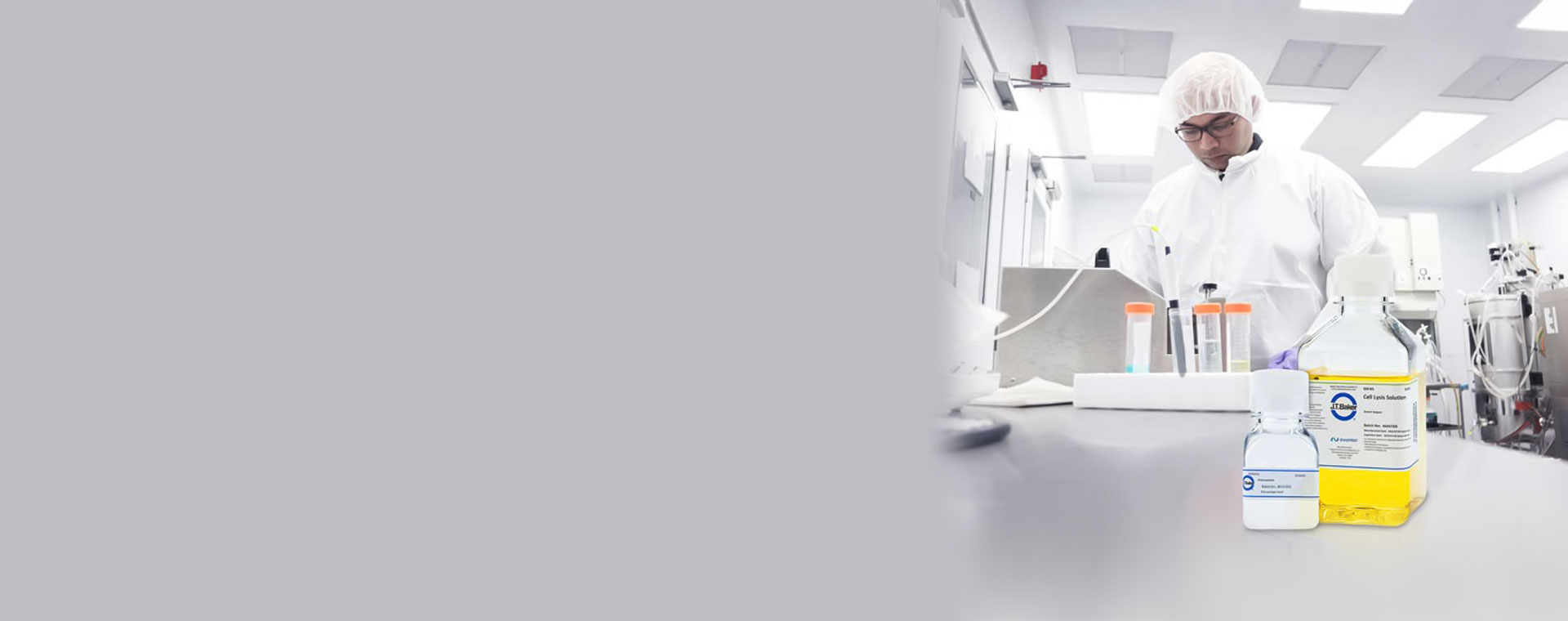
Novel Cell Lysis Solution: Scaling up viral vector harvest with ease and regulatory compliance
The accelerated growth of gene therapy, particularly those utilizing adeno-associated virus (AAV) and lentivirus (LV) vectors, has amplified the need for scalable and robust bioproduction processes. Among the most challenging steps at large scale is cell lysis, which must balance operational simplicity, regulatory compliance and high performance. The historical reliance on Triton™ X-100 is now problematic due to its designation as a substance of very high concern under EU REACH regulations, creating a critical need for a next-generation solution.
This white paper discusses the three essential criteria for an ideal cell lysis reagent — ease of use, regulatory compliance and process performance — and how novel J.T.Baker® Cell Lysis Solution (CLS) compares to generic detergents. CLS offers low viscosity for ease of use, a highly concentrated format to minimize fluid handling and compatibility with endonuclease activity, streamlining downstream DNA digestion without buffer exchange.
Comparative performance data demonstrate that CLS matches or exceeds Triton X-100 and polysorbate 20 in lysis efficiency, viral vector recovery and protection of viral particle integrity under typical processing conditions. Additionally, CLS is proven to be effectively cleared using standard downstream methods such as anion exchange chromatography, ensuring product purity and regulatory alignment.
Together, these features position J.T.Baker® CLS as a scalable, compliant, and high-performance solution for the next generation of viral vector manufacturing.
Author

Beth Kroeger-Fahnestock
Director, New Product Introduction at Avantor
Beth Kroeger-Fahnestock is a Director, New Product Introduction, in Avantor’s Biopharma Production division. She currently manages new product launches to support Avantor’s mission in bringing lifesaving medicines to market. She has extensive industry experience in Manufacturing, Validation, Technical Transfer, R&D, Compliance, and Quality from her various positions she has held. Her areas of expertise include large-scale Bioprocess systems, downstream purification operations, and process and cleaning validation along with cleanroom environmental control, speaking frequently on these topics for educational and professional organizations. She served on the ISPE task force responsible for writing the ISPE Guidance: Cleaning Validation Lifecycle – Applications, Methods, and Controls Good Practice Guide, published in 2020 and was an Adjunct Lecturer, Temple University, School of Pharmacy, RA/QA Graduate Program for several years. She earned a B.S. in Biochemistry from the University of Missouri, St. Louis.



